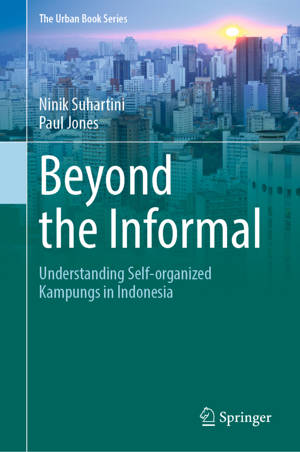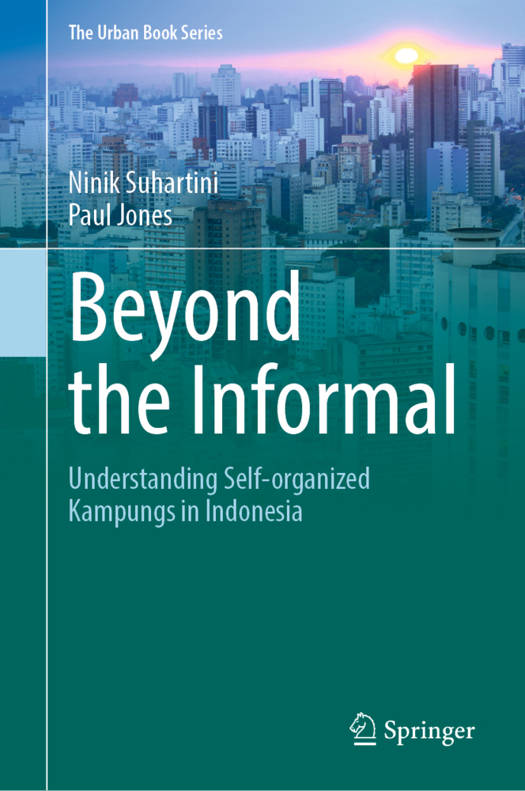
Bedankt voor het vertrouwen het afgelopen jaar! Om jou te bedanken bieden we GRATIS verzending (in België) aan op alles gedurende de hele maand januari.
- Afhalen na 1 uur in een winkel met voorraad
- In januari gratis thuislevering in België
- Ruim aanbod met 7 miljoen producten
Bedankt voor het vertrouwen het afgelopen jaar! Om jou te bedanken bieden we GRATIS verzending (in België) aan op alles gedurende de hele maand januari.
- Afhalen na 1 uur in een winkel met voorraad
- In januari gratis thuislevering in België
- Ruim aanbod met 7 miljoen producten
Zoeken
€ 213,95
+ 427 punten
Uitvoering
Omschrijving
This book provides a much-needed analysis of the pivotal role of the urban kampung in Indonesia's urbanization process and importantly, provides a deeper understanding of how these communities create their complex socio-physical environments through self-organization. The book challenges the current formal approaches and practices to modern planning in Indonesia where many kampungs are classed as illegal and excluded from city plans. Beyond informality unpacks via three case studies the self-generated planning and development arrangements and mechanisms which occur parallel to processes of formal exclusion, adaptation, negotiation and modification. Kampungs are posited as inseparable urban entities contributing to the complex assemblage of the city and the dynamics of contemporary urban planning and design.
In the context of planning and design practice, this book provides a better understanding on how one needs to consider human-scale urbanism to achieve more effective and efficient planning plans and policies in the self-organized city. Even though self-organization by residents comes with its challenges as outlined in the book, formal planning in both Indonesia and other developing countries has much to learn from understanding self-organized settlements (kampung) and informal settlements 'as they are'.
In the context of planning and design practice, this book provides a better understanding on how one needs to consider human-scale urbanism to achieve more effective and efficient planning plans and policies in the self-organized city. Even though self-organization by residents comes with its challenges as outlined in the book, formal planning in both Indonesia and other developing countries has much to learn from understanding self-organized settlements (kampung) and informal settlements 'as they are'.
Specificaties
Betrokkenen
- Auteur(s):
- Uitgeverij:
Inhoud
- Aantal bladzijden:
- 161
- Taal:
- Engels
- Reeks:
Eigenschappen
- Productcode (EAN):
- 9783031222382
- Verschijningsdatum:
- 2/01/2023
- Uitvoering:
- Hardcover
- Formaat:
- Genaaid
- Afmetingen:
- 148 mm x 230 mm
- Gewicht:
- 476 g

Alleen bij Standaard Boekhandel
+ 427 punten op je klantenkaart van Standaard Boekhandel
Beoordelingen
We publiceren alleen reviews die voldoen aan de voorwaarden voor reviews. Bekijk onze voorwaarden voor reviews.









